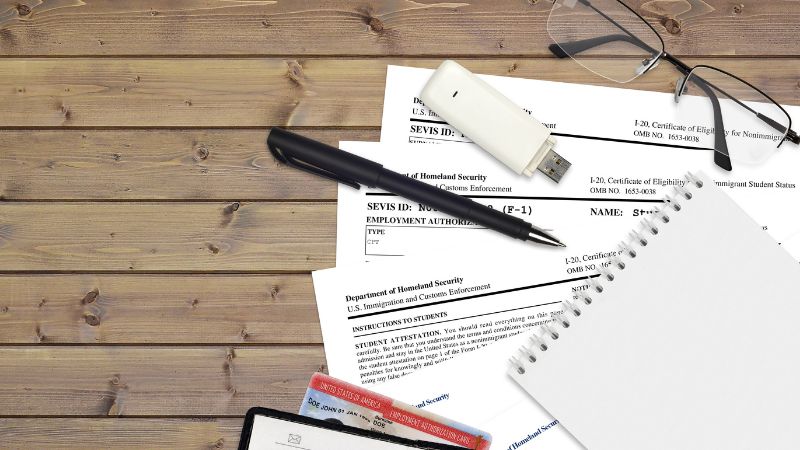Applying for Naturalization in Japan: Procedures and Key Points for a Successful Application

“I want to live in Japan for the rest of my life.” “I want to start a new life in this country as a Japanese citizen.”
While you may hold these strong desires, you might also have many questions and anxieties, such as:
“Where do I even begin with a naturalization application?” “The process seems so complicated; I’m worried I can’t do it alone.” “What if my application fails?”
Hello, I am Megumi Suzuki, the representative of Megumi International Administrative Scrivener Office.
Applying for naturalization is a major life decision, and the path is by no means an easy one. However, with the right knowledge and by carefully proceeding one step at a time, the way will surely open up for you.
In this article, I hope to ease your worries, even just a little. I will explain everything from the overall process to common stumbling blocks and the secrets to success, all with the goal of helping you take a firm step toward your goal of naturalization.
By the time you finish reading this, your vague anxiety about the naturalization process should transform into a concrete action plan. Please allow me to give my full support to your new beginning.
First Things to Know: The Basics of Naturalization and the Difference from “Permanent Residency”

“A great number of people are unsure whether ‘naturalization’ or ‘permanent residency’ is better for them. Firmly understanding the difference between these two is the first important step.”
To “Become a Japanese Citizen”—That Is Naturalization
In simple terms, naturalization means “to acquire Japanese nationality and legally become a Japanese citizen.”
When you become a Japanese citizen, you can hold a Japanese passport and gain the right to vote and run for public office. Furthermore, procedures like renewing your residence card will no longer be necessary, allowing you to live a stable life as a citizen of Japan.
On the other hand, Japan does not permit dual nationality, so as a general rule, you will have to renounce your original citizenship. This makes it a very significant decision in your life.
The Big Difference is “Nationality”: Let’s Compare “Naturalization” and “Permanent Residency”
While “naturalization” and “permanent residency” may seem similar in that they both allow you to live in Japan indefinitely, they are fundamentally different.
- Naturalization: You acquire Japanese nationality and become a Japanese citizen.
- Permanent Residency: You gain the right to live in Japan permanently while retaining your foreign nationality.
This point—”whether your nationality changes or not”—is the starting point for all other differences.
| Item | Naturalization | Permanent Residency |
|---|---|---|
| Nationality | Japanese | Remains your country of origin |
| Right to Vote, etc. | Yes | No |
| Japanese Passport | Can obtain | Cannot obtain |
| Renewal of Residence Card | Not required | Required |
| Possibility of Deportation | No | Yes |
| Required Years of Residence (Guideline) | 5+ years | 10+ years |



It may come as a surprise, but looking only at the residency requirement, naturalization is actually shorter.
Can I Naturalize? Let’s Check the 7 Basic Requirements
To apply for naturalization, you must clear several conditions stipulated by the Nationality Act. Here, let’s look at seven particularly important conditions one by one.



“This might seem a little difficult, but please try to read it while comparing it to your own situation. If you have any concerns, even about a single point, please feel free to consult with us.”
1. Residence Requirement: Have you lived in Japan continuously for 5 years or more?
The key word here is “continuously.” If you leave Japan for more than 3 months on a single trip, or if the total number of days you are out of the country in one year exceeds 100-150 days, your residency history up to that point may be reset.
2. Capacity Requirement: Are you 18 years of age or older?
You must be of the age of majority under Japanese law.
3. Good Conduct Requirement: Are you living in compliance with the rules?
This is a very important condition, and the following points are specifically reviewed:
- Criminal Record: In principle, you should not have one.
- Traffic Violations: A few minor violations are generally not a problem, but serious violations will make it difficult.
- Tax and Pension Obligations: Failure to pay or late payment of taxes and pensions is a major reason for rejection. Be sure to confirm that you have paid them properly.
4. Livelihood Requirement: Can you lead a stable life in Japan?
You must be able to prove that you can support yourself through your own income or that of your spouse or other family members. What’s important is not the amount of your savings, but rather having a stable monthly income.
5. Prohibition of Dual Nationality: Can you renounce your original nationality?
As mentioned earlier, it is a prerequisite that you will lose your original nationality upon naturalization.
6. Ideological Requirement: Do you intend to abide by Japan’s rules?
The Constitution of Japan is founded on the important principles of popular sovereignty, respect for fundamental human rights, and pacifism. Therefore, you are required to not be involved with any ideology or organization that aims to “destroy the Constitution or the government by violence.” In other words, the key to this requirement is to clearly demonstrate your stance that “I will live peacefully in Japan.”
7. Japanese Language Ability: Can you read, write, and speak at a basic level?
The ability to read, write, and converse at the level of a lower-grade elementary school student in Japan is considered a benchmark. If the official from the Ministry of Justice has doubts about your Japanese ability, you may be asked to take a reading and writing test.
A Complete Guide to All Steps of the Naturalization Process | From Consultation to Approval
A naturalization application isn’t over once you submit the documents. It is a long journey that proceeds through multiple discussions with an official at the Legal Affairs Bureau.



“This process takes about a year on average. Gathering the documents is especially challenging, but let’s proceed carefully, one step at a time. Our office provides solid support for everything from preparing to creating these complex documents.”
Step 1: Preliminary Consultation at the Legal Affairs Bureau [Appointment Required]
It all starts with making an appointment by phone and going for a consultation at the Legal Affairs Bureau that has jurisdiction over your address. Here, an official will confirm whether your situation meets the conditions for naturalization.
Step 2: Collecting a Vast Amount of Documents
If you get the green light at the consultation, you will be given a personalized list of required documents. This document collection phase is the most difficult part of the naturalization application.
- Documents you prepare yourself: Application form, personal history statement, etc.
- Documents from Japanese public offices: Certificate of residence (Juminhyo), tax payment certificates, etc.
- Documents from your home country: Birth certificate, marriage certificate, etc.
Documents from your home country, in particular, can often take a long time to obtain, so you need to proceed with a plan. Additionally, all documents in a foreign language must be translated into Japanese.
Step 3: Creating and Submitting the Application Documents
Once all the documents are ready, they will be checked by an official at the Legal Affairs Bureau. If there are no issues, the application is formally “accepted.” This acceptance marks the official start of the screening process.
Step 4: Interview and Investigation
Several months after acceptance, an interview will be held at the Legal Affairs Bureau. You will be asked questions about the content of your application, so it is important to answer honestly and sincerely.
Step 5: Awaiting the Screening Result
After the interview, the final screening period begins. You will wait for a notification of approval or rejection. During this period, if your address or job changes, or if you commit a traffic violation, you must report it to the Legal Affairs Bureau.
It’s Not Over After Approval! Important Post-Naturalization Procedures



“Congratulations! But let’s hang in there just a little longer. There are some very important procedures left to ensure a smooth start to your new life as a Japanese citizen.”
Once you receive notice of approval, it’s not all over. You must promptly complete procedures with set deadlines to create your Japanese family register (koseki) and update your identification documents.
- Submission of Notification of Naturalization (within 1 month)
- Return of your Residence Card (within 14 days)
- Changing your name on your My Number Card and driver’s license
- Applying for a Japanese passport
Be especially careful not to forget to return your Residence Card, as the deadline is short.
How to Avoid Failure in Your Naturalization Application | The Merits of Consulting a Professional
It is not impossible to proceed with a naturalization application on your own. However, the path is extremely complex and requires a great deal of time and effort.
Common reasons for rejection include:
- Unpaid taxes or pensions
- Past traffic violations or inconsistencies in the application content
- Interruption of the residence requirement due to long-term departures from Japan
- Failure to report changes that occurred during the screening process
By entrusting your case to a professional like an administrative scrivener, you gain several advantages:
- You can receive optimal advice tailored to your specific situation.
- You can significantly reduce the burden of collecting and creating complex documents.
- You can prevent procedural mistakes and minimize the risk of rejection.
Above all, the mental peace of mind from not having to carry your worries and anxieties alone may be the greatest benefit.
Conclusion
We have discussed the overall picture of the naturalization application. What did you think?
The path to naturalization may be a long and arduous journey that you stake your life on. However, at the end of that path lies the irreplaceable future of living in this country as a Japanese citizen.
If you are currently struggling with anxiety alone, please reach out.
At Megumi International Administrative Scrivener Office, we do more than just handle the paperwork. We sincerely listen to your feelings about Japan and wish to walk with you to the finish line as a partner in making your dream a reality.
Our office can assist you in English and Chinese, so you can consult with us without feeling a language barrier.
We will support your new beginning with all our hearts.





Please feel free to contact us for a free consultation to start. Let’s open the door to your future, together.
